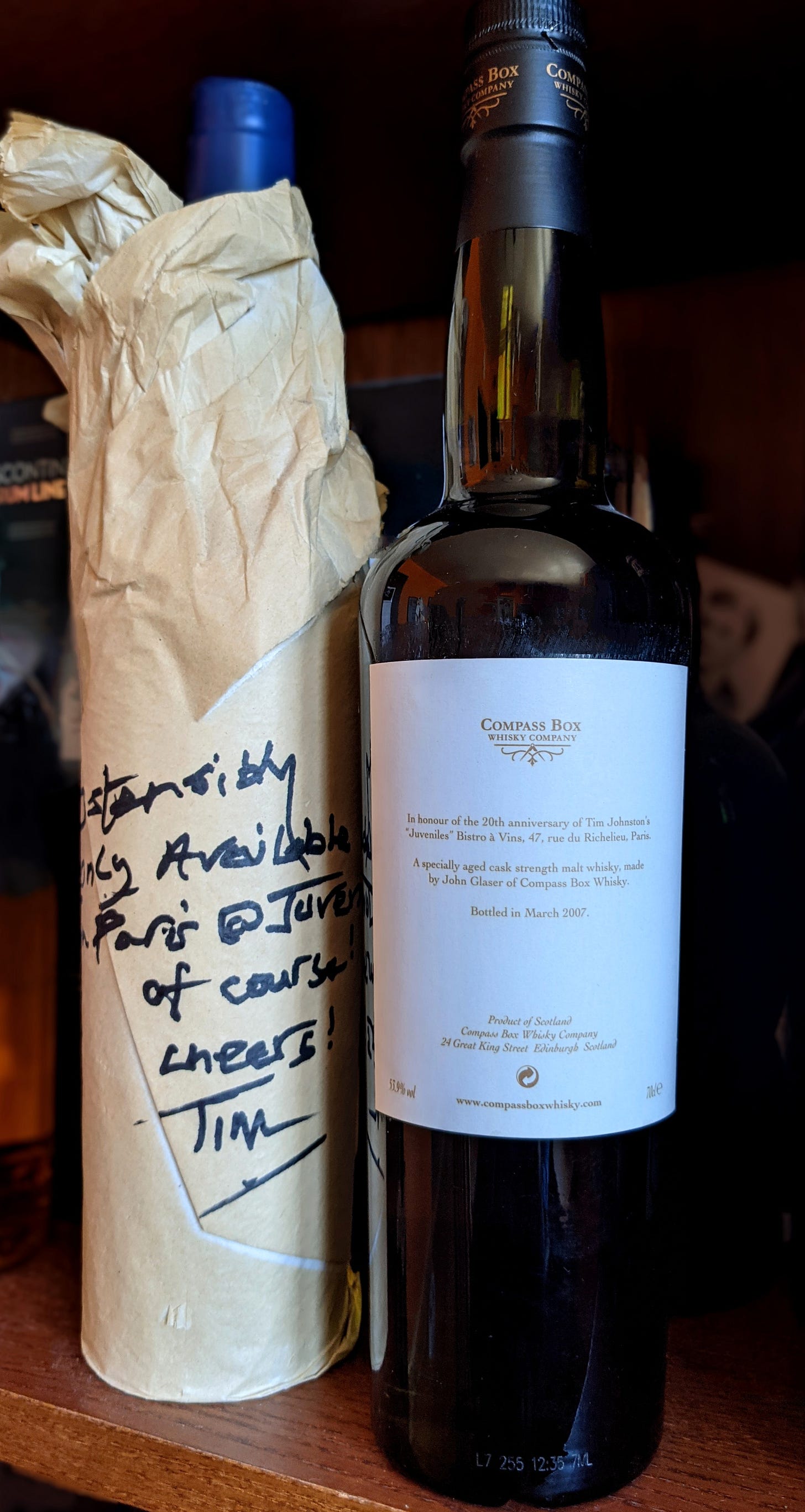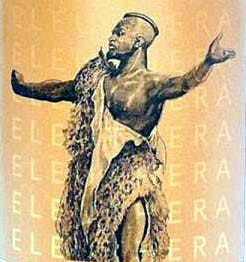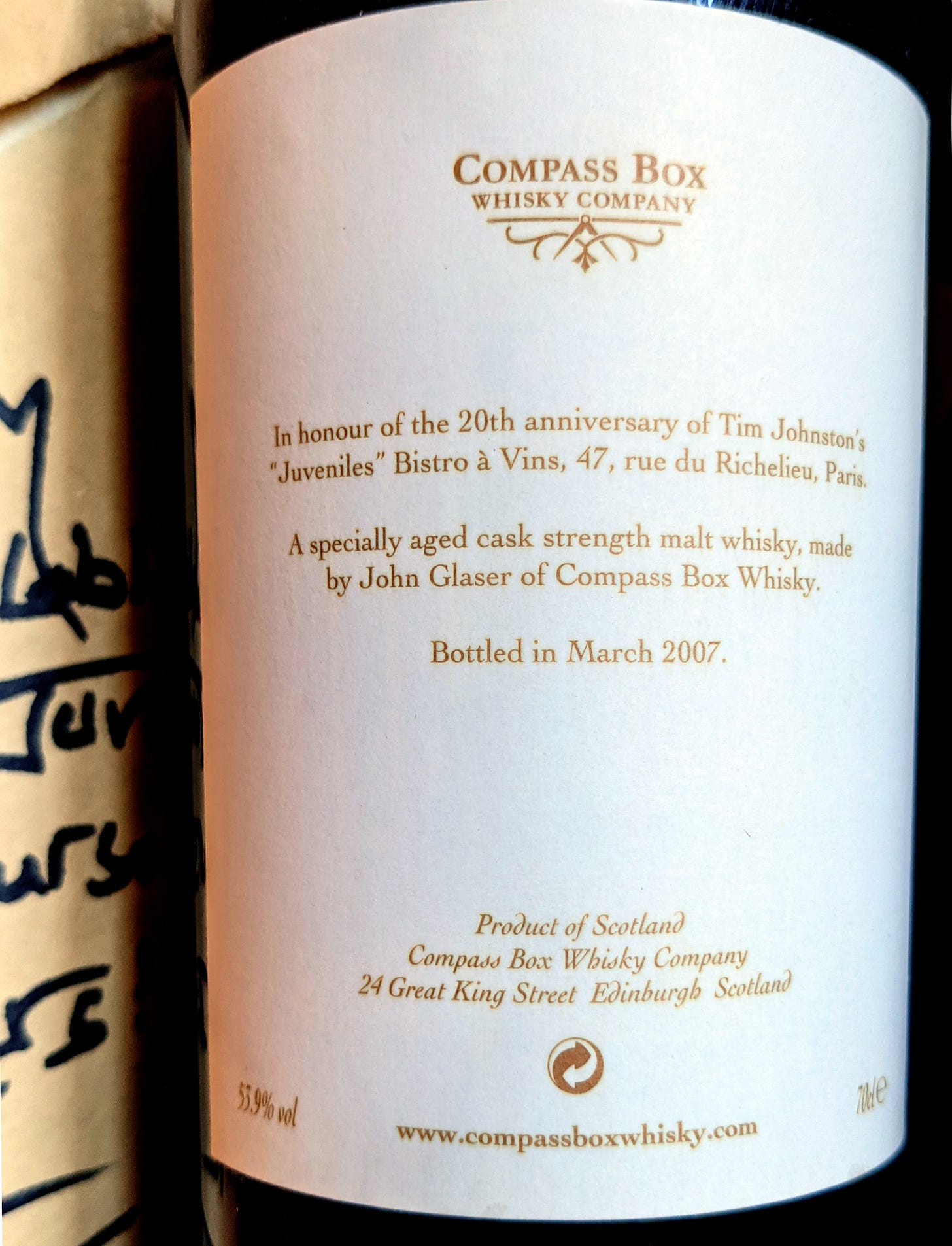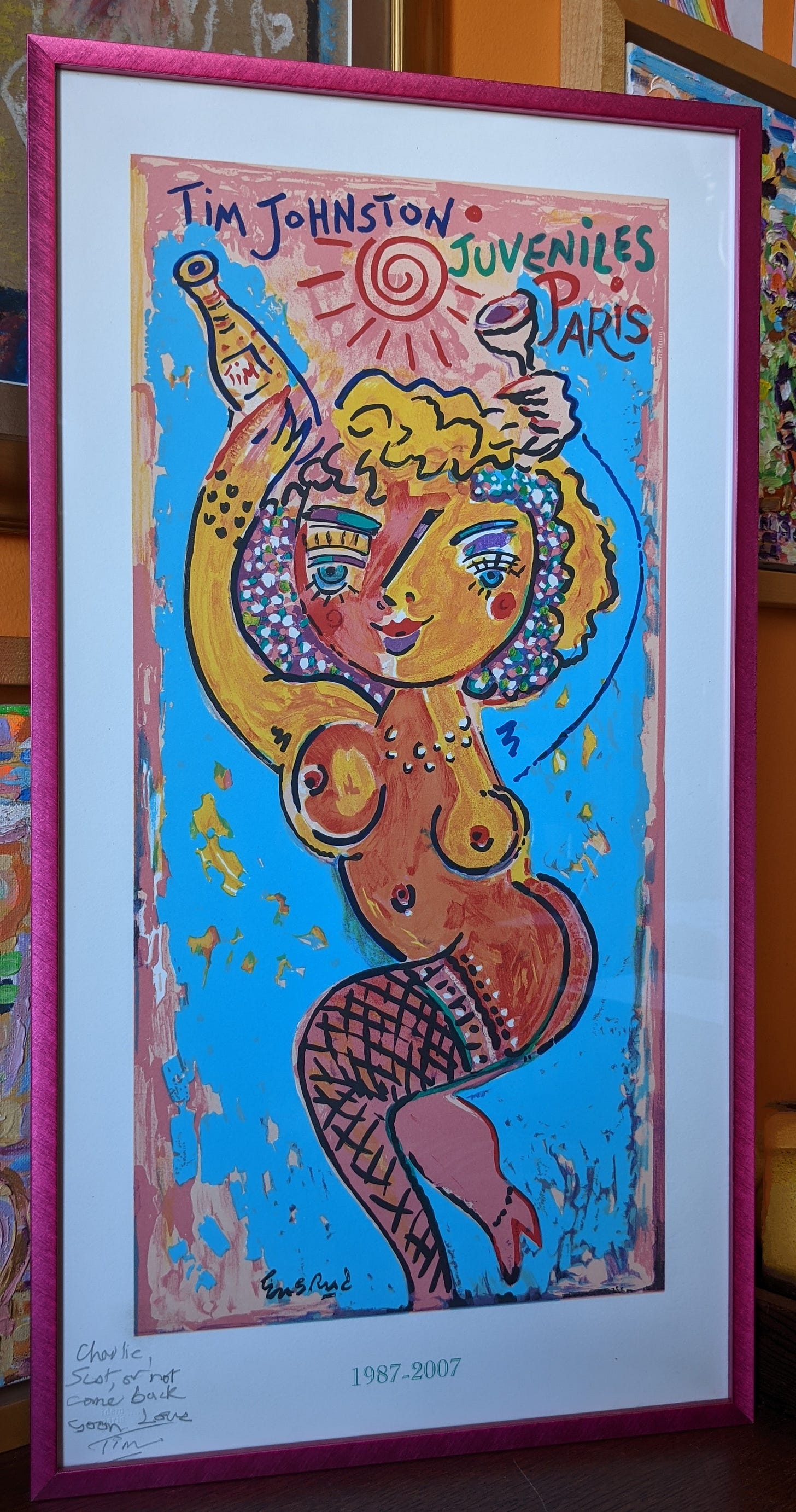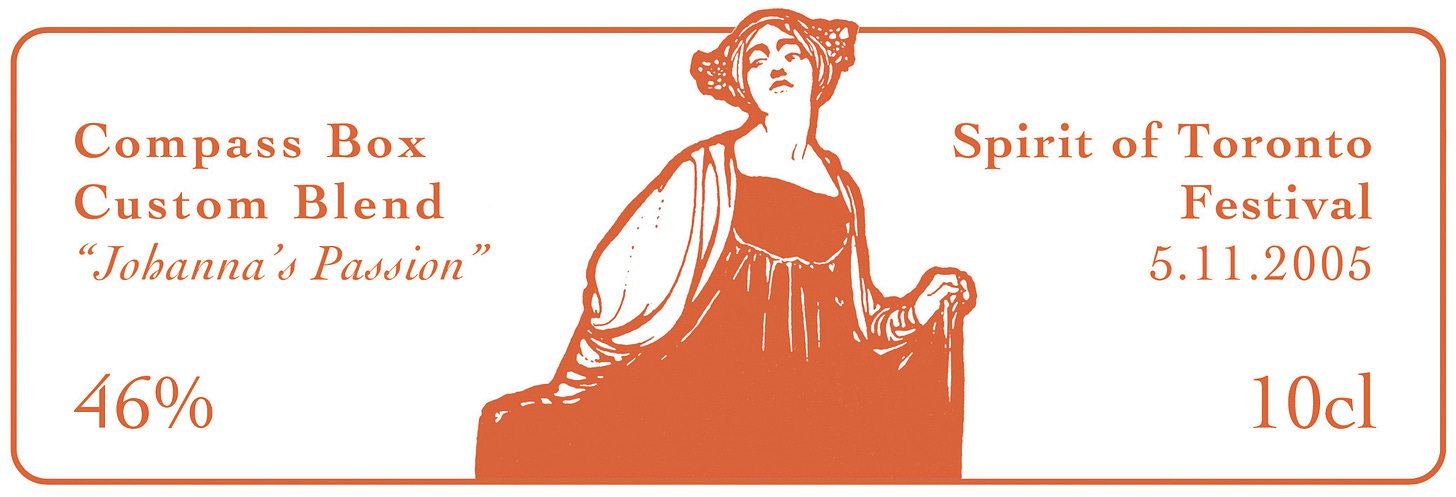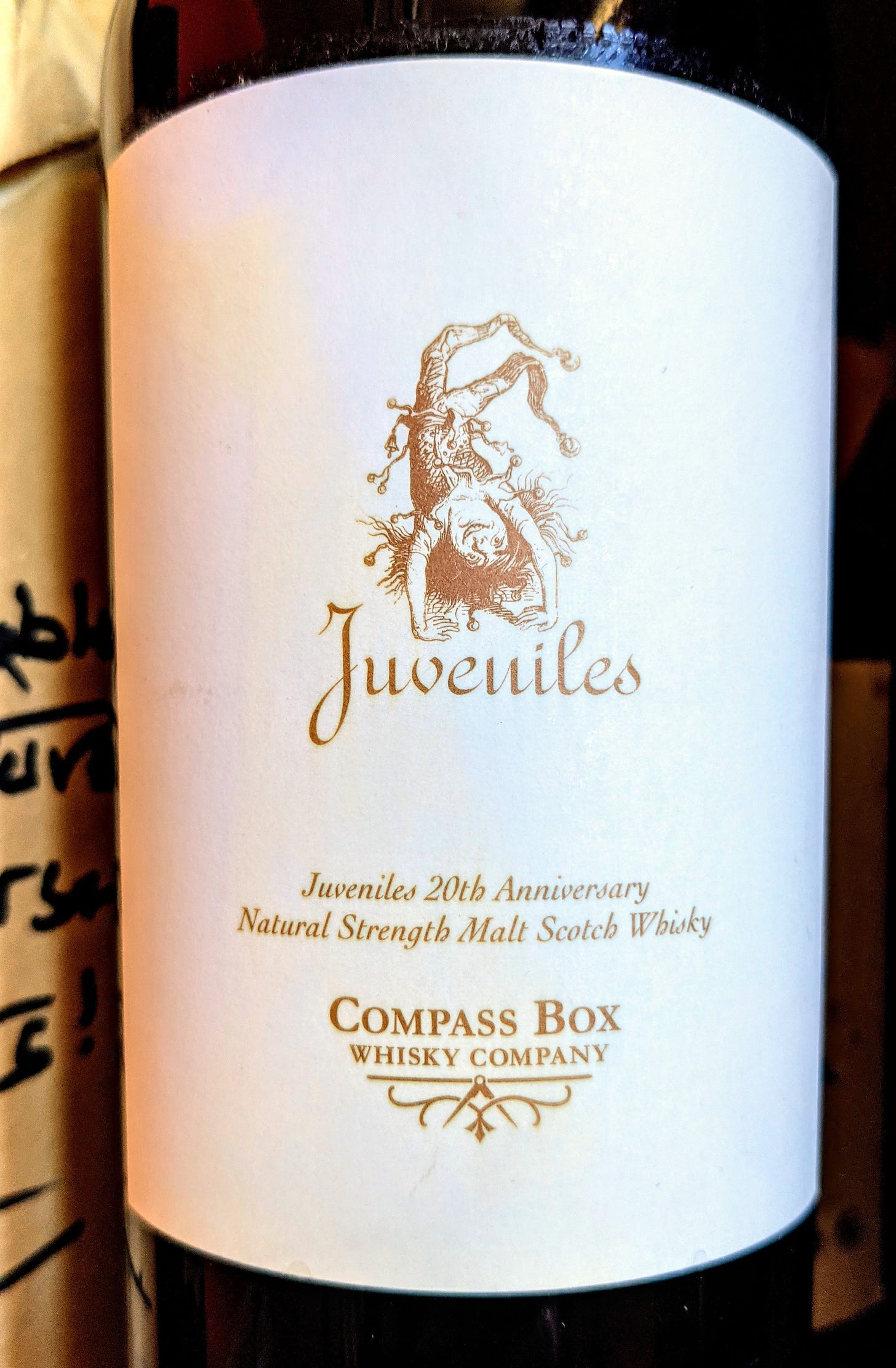Compass Box Juveniles 20th Anniversary, 53.9%
John Glaser – Scotch whisky’s ‘enfant terrible’ – takes a final bow
Having once considered myself the original Compass Box fanboy, recent news that founder John Glaser was leaving the business left me feeling different things, but surprise wasn’t one of them. It seemed not too long ago that Spirits Business reported that “Caelum Capital took a majority stake in Compass Box,” which is one way of saying that you’ve sold your business to investors, while keeping a few shares in your personal stock portfolio. The news brought to mind our time spent with Pår Caldenby while visiting his passion project, the bijoux Smögen distillery on the west coast of Sweden: “You cannot share a passion with capital investors – I know this from my legal work in dispute resolution.”
As an MBA and former lieutenant for Diageo, I don’t doubt for a moment that John, too, was aware of this, and I imagine that his parachute has been carefully packed for some time. I’m speculating of course as it’s been years since I last saw John. And truthfully it’s been just as long since I last tasted anything from Compass Box, my interest waning as the releases became more ‘brand’ and less ‘John’.
But giving credit where credit is due, much of John’s early body of work was a tour de force that few in the industry can match: Monster for Park Avenue Liquor (precursor to Peat Monster), the original Double Single for the Craigellachie Hotel, The General, Flaming Heart 4th Edition (paired with Eccles cake and Lancashire cheddar, oh John!), those Canto Casks, Great King Street Artist’s Blend, take two — we don’t always get it right on the first try, do we? These reminiscings make me wish I’d cellared more of what I once called John’s “mad blending skillz”. But as someone easily swayed by typography and pretty packaging, I also admired the stylish aesthetics John sought to impart to the world of Scotch whisky with names like Asyla and Hedonism, and brand imagery that took inspiration from La Belle Epoque, Jules Vernes and Victorian England.
Nevermind Eleuthera, John’s first vatted malt and the first Scotch whisky to feature a person of colour on its label. It spoke volumes to John being far, far ahead of his time, though cue 2024 and he’d likely be called out for cultural appropriation. And can we finally talk about how Eleuthera and its African king were quietly culled from the original Compass Box stable, despite being a rich, smoky blend of island malts, not dissimilar to Peat Monster, its successor? (Or how it’s king was noticeably absent when Compass Box resuscitated Eleuthera as a limited edition for La Maison du Whisky in 2005?) Which is in no way to blame John for the fact that menacing sea creatures were an easier sell than African kings.
(To be clear the official story was that Eleuthera and its African king were ‘retired’ when it’s core component — 15-year-old Clynelish from recharred casks — was no longer available… as opposed to reworking its recipe, which is the very reason for blending in the first place. Ah well, the King is dead. Long live the King!)
Compass Box had no shortage of naysayers, and not everyone was a fan of how John placed story and packaging at the forefront of his releases. His liner notes often read like rambling entries from a personal journal as he talked about late nights with energy left to burn, long drives listening to music, and roasting a whole head of cauliflower with nutmeg (still meaning to try that). The copy on his back labels would always end with the same familiar platitude, exhorting his customers to enjoy his whisky “anyway you like it, but above all, share and enjoy!” — in itself canny, yet subtle; closed bottles don’t soon get replenished do they? As they say in sales, ABC: always be closing!
These days marketing hacks gush about disruptor brands, though few seem to grasp the vision and risk required to bring them to market. Beyond the catchy labels, John recognized that Scotch whisky needed to connect with a wider audience lest it atrophy completely. He was the first in the industry to work with now famed designers Stranger & Stranger, with the goal of differentiating his bottles in stores, but more importantly on the gantry. “What I learned from Diageo is that you build your brand in the on-trade,” he once shared. But while John reimagined Scotch whisky on the shelf, he also reimagined it in the glass, making whiskies that were both complex and highly drinkable, whiskies that saw you finishing a bottle and replacing it sooner than expected, what John called ‘whiskies for everyday enjoyment’. Outside of blending it is difficult to strike that balance, and Compass Box offered just that, along with enough shiny baubles peppered along the way, whiskies for what John called ‘moments of celebration’.
Compass Box’s Juveniles 20th Anniversary was bottled as such a whisky, in celebration of one of the earliest wine bars to open in Paris. Juveniles was known as a lively place for good food, good drink and good times, as much frequented by famous winemakers from around the globe, as it was by locals. All would be greeted warmly by owner Tim Johnston, a bon vivant and Scotsman whose no-frills attitude and eclectic personality was imbued in its walls. And while the wine list was known to be exceptional, you didn’t have to be an oenophile to have fun here. Tim wasn’t one to take wine or food (or himself) too seriously, and happily served Macsween haggis as well as his house malt, Juveniles, blended by John, a longtime wine lover before his fascination with whisky took hold.
It was at John’s invitation that we arrived at Juveniles by taxi one evening, this being one of his favoured Paris haunts. A gentleman to a fault, John stopped us at the door and apologized in advance for any off-colour comments his friend might make, recovering from a stroke and all. Quite to the contrary I found Tim to be a character in the best way, and enjoyed the raucous banter as Tim held court (“God no, I didn’t marry here. French women make great mistresses but lousy wives.”)
Despite their very different miens, Tim and John struck me as kindred spirits, two mavericks albeit on different crusades: Tim, a Scot, opening a ‘bistrot à vin’ in Paris, and introducing the French to Australian wine. Meanwhile John, an American, was driving through Scotland trying to convince retailers like Robertson’s to sell the Scotch he’d blended at his kitchen table. (“He’d have made it by now if the idea had legs,” I remember being told by a cynical Allan Robertson while visiting his Pitlochry shop in 2004. Fast forward twenty years and Compass Box scores a major investment, the value of which “has not been disclosed.” How you like them apples Mr. Grumpypants?)
Although wine was his first love, John walked the walk and immediately ordered a round of whisky as we sat down. Healthy drams of Juveniles 20th Anniversary appeared. It had been selected from Compass Box’s Canto Cask trials, a series of individual casks filled with the same blend of malt whisky from Clynelish, Teaninich, and Dailuaine distilleries, each finished for 18 months in new oak casks, with a variety of toasting levels. Naturally Juveniles 20th cask was finished in new French oak, and bottled at cask strength. As someone who favours sipping over drinking, it was one of the rare moments that saw me upend a glass as the contents slid down my gullet, seemingly in one go. I clearly remember upon tasting this whisky I could not, would not stop. After pausing to contemplate the finish I turned to Tim glass in hand, wide-eyed. “More please?”
Tim grinned widely. “I take it you like?” he said. To which I replied, “Actually I’m thinking that John must really like you to bottle such an excellent cask in your name.” Meanwhile, from the corner of my eye, I noticed that John had stiffened and seemed a touch nervous, perhaps sensing that we were in for a longer night than intended. But to quote the man himself, “great whiskies have a deliciousness that makes you want to take another sip.” Amen to that.
John takes his leave from a very different Scotch whisky landscape than the one he entered. Anyone can buy a cask from a broker’s list, commission artwork for the label with a clever name, and many do these days. By contrast it takes patience and focus to build a brand with a loyal following. Certainly not many would choose to do so while challenging established conventions.
As someone who would rather beg forgiveness than ask permission, I applauded John’s gumption as he wrestled with the SWA over his declaration of age statements and unconventional use of new oak in The Spice Tree. But I also tipped my hat to his marketing chops as he leveraged the publicity to his advantage, while goading consumers to start asking questions — in the end perhaps his most notable contribution to this current chapter of Scotch whisky history.
But when all is said and done, John will likely be remembered for bringing whisky into the 21st century with his wildly imaginative branding and fanciful labels, though to be frank, too much of a good thing becomes tiresome, especially marketing. For this reason I relish Juveniles 20th Anniversary for boasting such a plain, nondescript label with scant details, its focus placed squarely on the contents and the sentiment.
It was a refreshing departure from the busyness of Compass Box’s branding circus, and an homage to John’s appreciation of unfussy, humble ‘vins de table’, always in plentiful supply at Juveniles. That its 20th Anniversary bottling was last sold at auction for £3200 is perhaps the only off-note I can think of, for a whisky that was originally meant to be shared and enjoyed.
I cannot tell a lie: I miss the ‘old’ Compass Box. But I don’t begrudge success, and John worked hard for it. I like to think he’s finally bought himself a vineyard in France. Or maybe he’s off to Spain, “the world’s most exciting country for wine right now” according to Jason Wilson.
I may be wrong, but somehow I doubt we’ve tasted the last of John’s creations.



